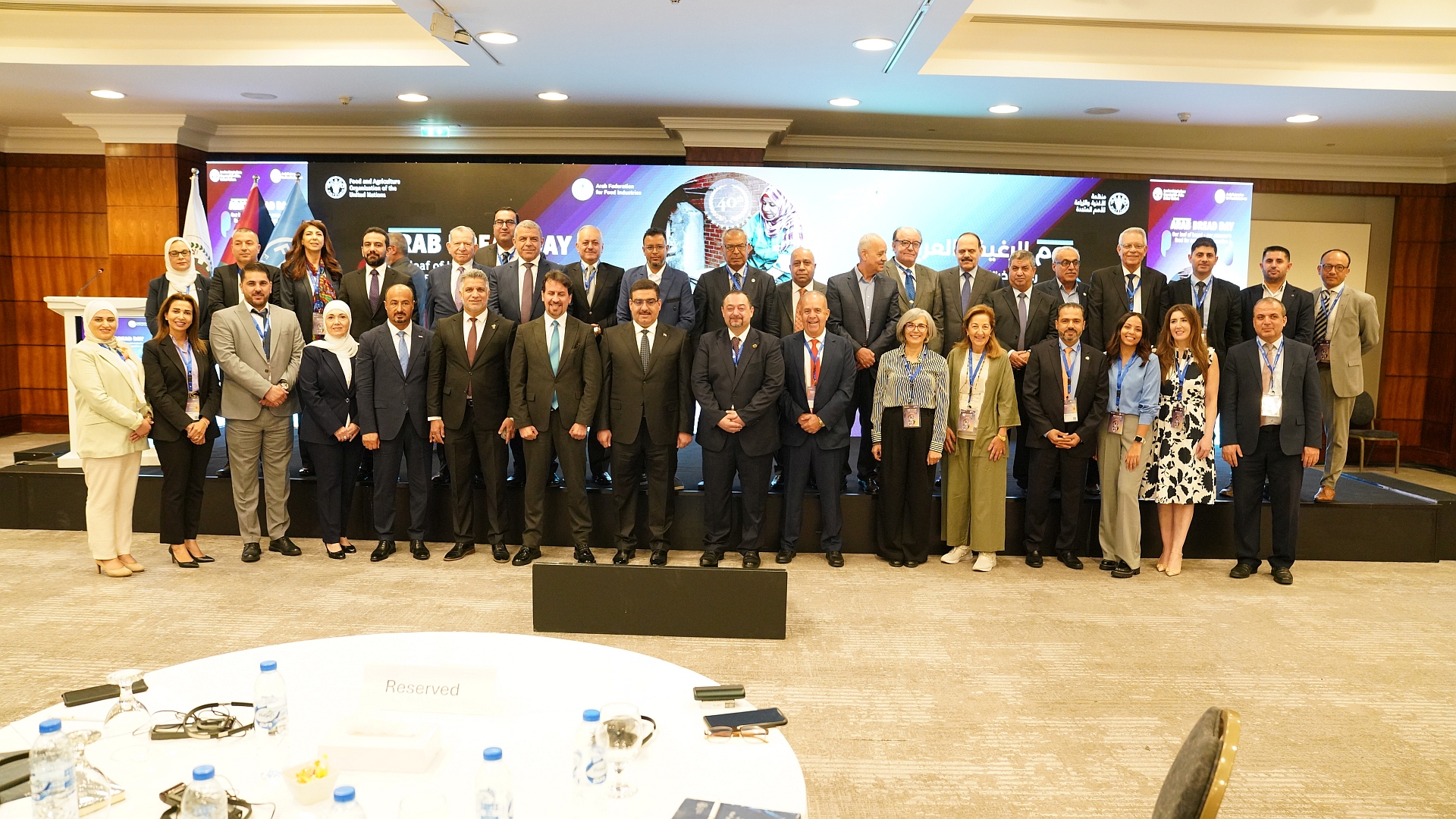Celebrating four decades of Arab Bread Day
FAO and AFFI mark the 40th Anniversary with a symposium on sustainable cereal production in the Arab Region

©FAO
The Food and Agriculture Organization (FAO) in collaboration with the Arab Federation for Food Industries (AFFI), today concluded the 40th anniversary of the Arab Bread Day in Amman, Jordan for two days under the patronage of the Minister of Agriculture in Jordan, Eng. Khalid Hnaifat. This significant event commemorates the first Arab International Grain Industry Conference held in 1984 in Jordan, which focused on the bread loaf and grain industry in the Arab world.
“The Arab world consumes an astounding 1.4 billion loaves of bread daily, underscoring the critical importance of the grain industry in the region. The annual celebration of Arab Bread Day highlights the Union’s commitment to addressing the realities and future of the bread and grain industry, ensuring sustainable development and food security for the Arab world,” declared Fadi Jabr, Secretary General to the Arab Federation for Food Industries.
The symposium brought together approximately 50 experts from 12 countries, including leading scientific researchers, standardization developers, wheat producers, bread manufacturers, mills, silos, pasta manufacturers, packaging companies, shipping companies, and representatives from the public and private sectors, ministries, relevant Arab and international organizations, and members of the Arab Union for Food Industries.
On behalf of the Minister of Agriculture in Jordan, Dr. Khaled Abu Hammour said that the Jordanian Ministry of Agriculture, through the directives of the Minister seeks to enhance the cultivation of wheat and barley by approving a plan to expand the cultivation of field crops (wheat and barley) through multiple main pillars, such as allocating interest-free loan packages to farmers through the Agricultural Credit Corporation for the purposes of production requirements for field crops and providing seeds to farmers in the farming areas for field crops.
“It is essential to recognize the required changes in both the production and consumption of bread, to enhance sustainability and productivity in the production value chain, and nutrition and availability at the consumption levels; while managing the prices from a political economy perspective,” stated Ahmad Mukhtar, FAO’s Senior Economist for the Near East and North Africa.
“The future of bread in the Arab world hinges on our collective efforts to embrace sustainability, improve nutritional outcomes, and ensure food security,” Mukhtar added.
This year’s Arab Bread Day shed light on the grain industry’s global and regional challenges, including climate change. These discussions emphasized the need for adaptive programs to meet evolving conditions and achieve the 2030 Sustainable Development Goals. By integrating these goals, stakeholders can effectively tackle obstacles and advance the sector in production, trade, storage, and consumption.
The Symposium reaffirmed the commitment of FAO and AFFI to sustainable cereal production and food security, with a clear call to action for all stakeholders. The event also highlighted the critical importance of adopting innovative practices and policies to enhance the resilience and productivity of the grain industry.
Commenting on this significant milestone, Nabil Assaf, FAO Representative to Jordan reaffirmed the Organization’s commitment to fostering sustainable cereal production, improving food security, and promoting healthier dietary habits in the Arab region.
“We look forward to continued collaboration and innovation to address the challenges and seize the opportunities in the cereals industry, ensuring a prosperous and healthy future for all,” Assaf added.
The event has set a robust agenda for the future, urging continued collaboration and innovation to address the challenges and seize the opportunities within the cereals industry. It also will play a crucial role in shaping the future of the grain industry in the Arab region.
